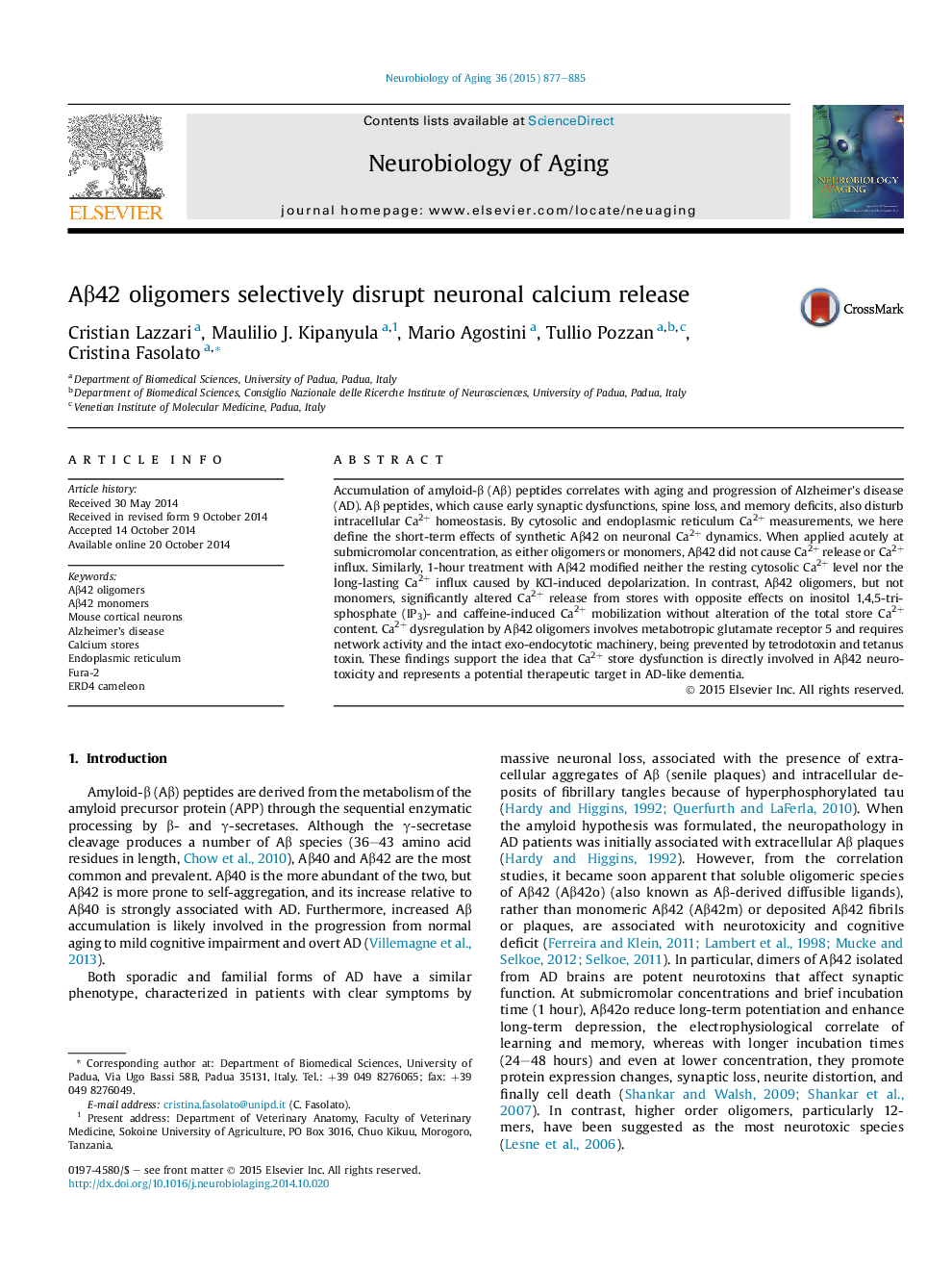| Article ID | Journal | Published Year | Pages | File Type |
|---|---|---|---|---|
| 6804855 | Neurobiology of Aging | 2015 | 9 Pages |
Abstract
Accumulation of amyloid-β (Aβ) peptides correlates with aging and progression of Alzheimer's disease (AD). Aβ peptides, which cause early synaptic dysfunctions, spine loss, and memory deficits, also disturb intracellular Ca2+ homeostasis. By cytosolic and endoplasmic reticulum Ca2+ measurements, we here define the short-term effects of synthetic Aβ42 on neuronal Ca2+ dynamics. When applied acutely at submicromolar concentration, as either oligomers or monomers, Aβ42 did not cause Ca2+ release or Ca2+ influx. Similarly, 1-hour treatment with Aβ42 modified neither the resting cytosolic Ca2+ level nor the long-lasting Ca2+ influx caused by KCl-induced depolarization. In contrast, Aβ42 oligomers, but not monomers, significantly altered Ca2+ release from stores with opposite effects on inositol 1,4,5-trisphosphate (IP3)- and caffeine-induced Ca2+ mobilization without alteration of the total store Ca2+ content. Ca2+ dysregulation by Aβ42 oligomers involves metabotropic glutamate receptor 5 and requires network activity and the intact exo-endocytotic machinery, being prevented by tetrodotoxin and tetanus toxin. These findings support the idea that Ca2+ store dysfunction is directly involved in Aβ42 neurotoxicity and represents a potential therapeutic target in AD-like dementia.
Related Topics
Life Sciences
Biochemistry, Genetics and Molecular Biology
Ageing
Authors
Cristian Lazzari, Maulilio J. Kipanyula, Mario Agostini, Tullio Pozzan, Cristina Fasolato,
